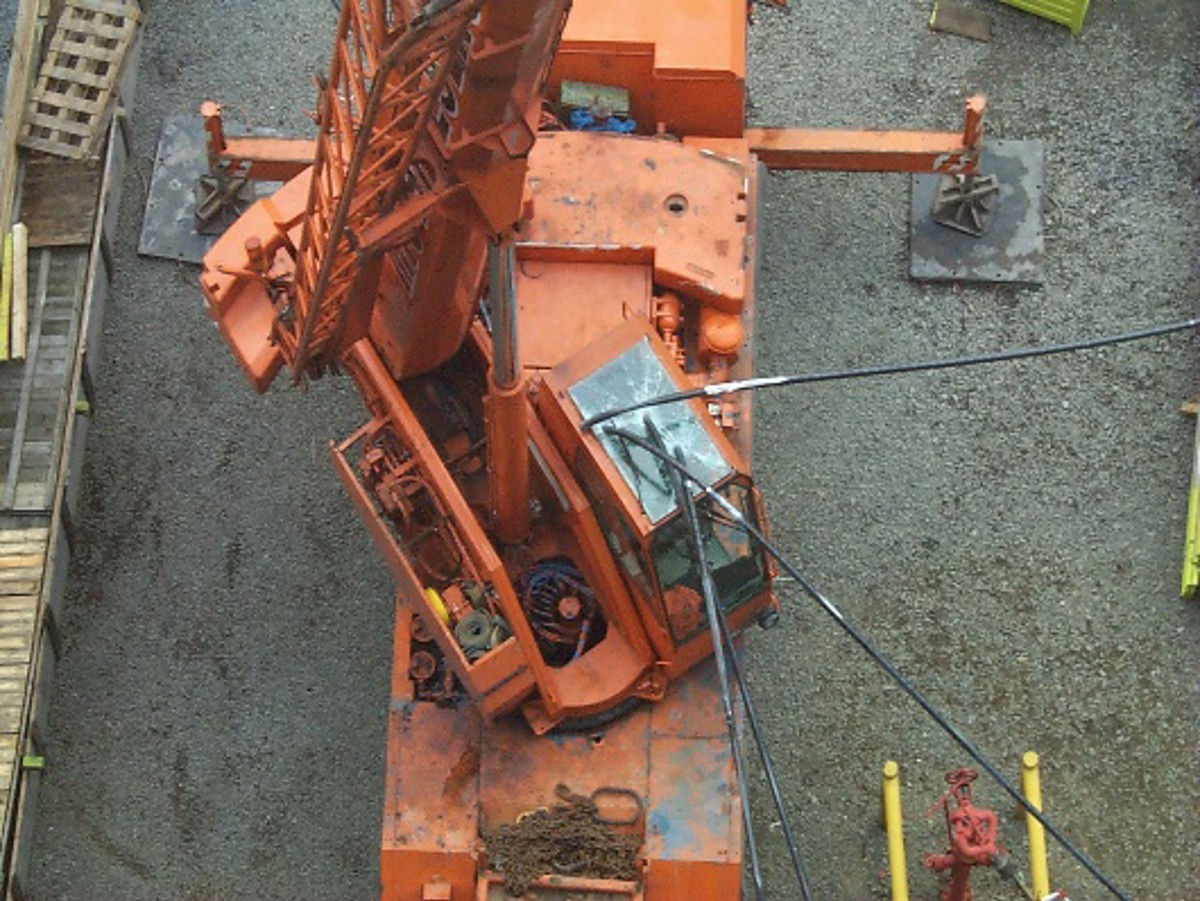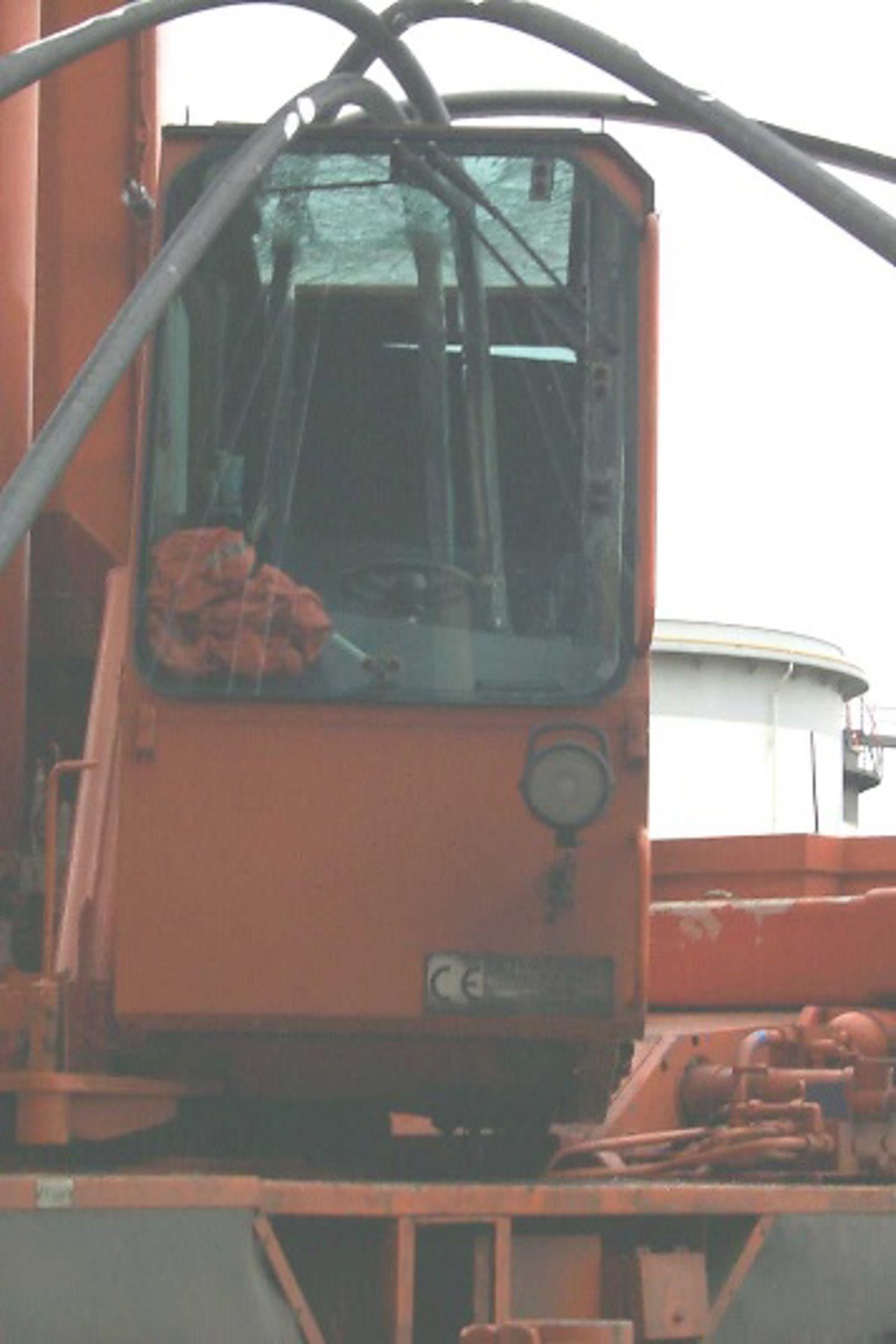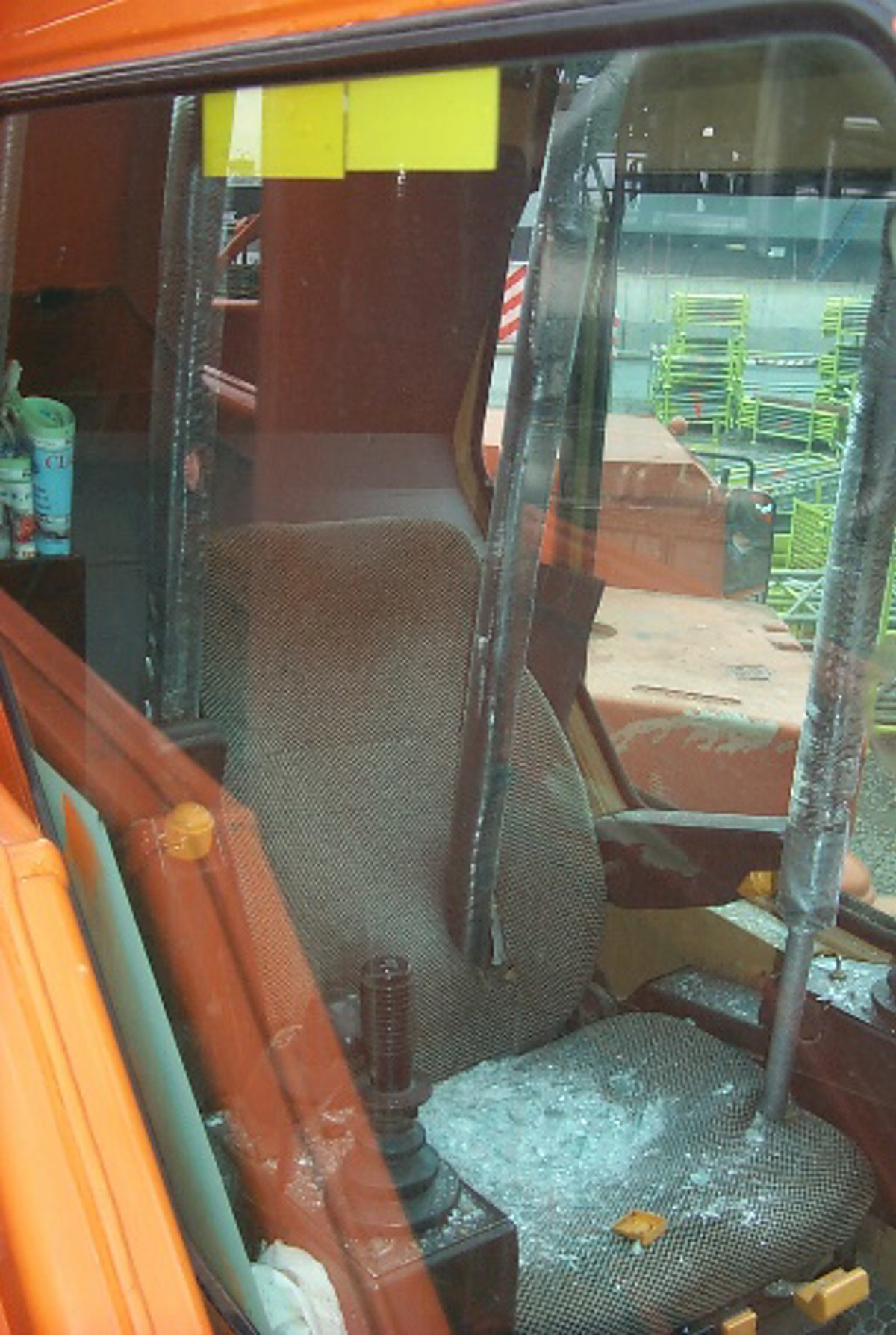Dangers from insecure crane loads
- Safety Flash
- Published on 1 October 2002
- Generated on 2 July 2025
- IMCA SF 10/02
- 1 minute read
Jump to:
This crane incident also occurred onshore, but the lessons to be learnt are equally applicable to Members’ lifting operations.
What happened?
During a major turn-around, fan tubes were being lifted using a tube tray. During the lift and while the tube tray was directly over the crane operator’s cab, the tube tray deviated from horizontal, causing the fan tubes to slide off. They plunged like arrows into the operator’s cab, piercing the back and seat of the operator’s chair. Amazingly the operator suffered only minor scratches to one leg.
This is a reminder that all ‘lifts’ must be taken seriously, from the lightest and least complex to the heaviest and most complex. Proper rigging and securing of loads is of vital importance and saves lives.
Swipe to see next image
IMCA Safety Flashes summarise key safety matters and incidents, allowing lessons to be more easily learnt for the benefit of the entire offshore industry.
The effectiveness of the IMCA Safety Flash system depends on the industry sharing information and so avoiding repeat incidents. Incidents are classified according to IOGP's Life Saving Rules.
All information is anonymised or sanitised, as appropriate, and warnings for graphic content included where possible.
IMCA makes every effort to ensure both the accuracy and reliability of the information shared, but is not be liable for any guidance and/or recommendation and/or statement herein contained.
The information contained in this document does not fulfil or replace any individual's or Member's legal, regulatory or other duties or obligations in respect of their operations. Individuals and Members remain solely responsible for the safe, lawful and proper conduct of their operations.
Share your safety incidents with IMCA online. Sign-up to receive Safety Flashes straight to your email.


